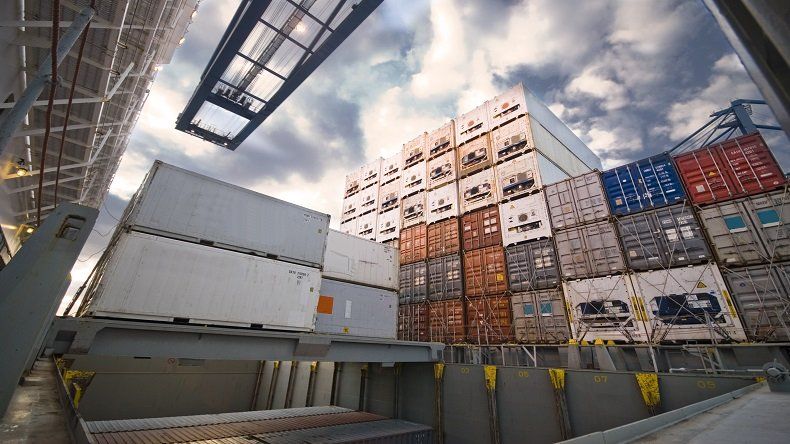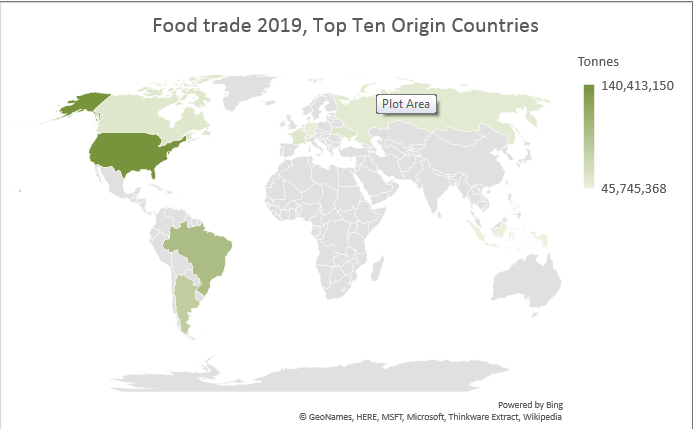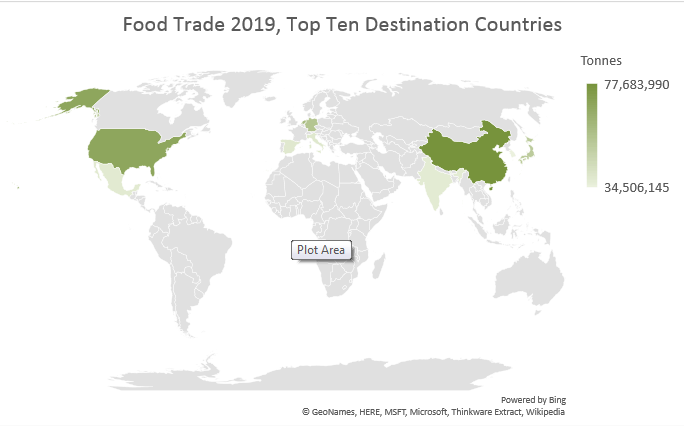
Coronavirus: Food supply chains under threat from lockdown measures
Efforts to contain the spread of coronavirus are already having an impact on supply chains. As borders close, food insecurity could cause further havoc
Staff shortages and quarantine measures threaten the free movement of food supplies across the shipping supply chain

FOOD SHIPMENTS, INCLUDING REEFER CARGOES, COULD BE AFFECTED BY QUARANTINE EFFORTS
FREQUENTLY asked questions about the coronavirus pandemic have focused on the number of new cases, the growth of the infection curve and its mortality rate.
But another set of numbers that should be of concern relate to the impact all this will have on the global economic system and that of the world’s food supply chains.
“It is still too early for an accurate assessment of the impact of coronavirus on the economy,” according to World Food Programme chief economist Arif Husain.
“Too much depends on what is not known — how long the outbreak lasts, how many countries it affects, and the type of policies governments will put in place to respond to the crisis.”
What is certain is that an economic downturn is to be expected at the global level, and that this is likely to trickle down to developing economies.

“In these contexts, a slowdown in the economy can exacerbate existing food insecurity,” Mr Husain said. “It limits people’s ability to access nutritious food in different ways, including through reduced income or increased job insecurity.”
In principle, the food and agricultural sector should be less affected than others by the coronavirus outbreak. But illness-related labour shortages, transport interruptions, quarantine measures limiting access to markets and supply chain disruptions could affect this sector as well.
The food and agricultural sector could be affected on both the demand as well as the supply side.
On the demand side, the diminishing purchasing power due to job losses could affect people’s diet, resulting in poorer nutrition, while panic purchases of food could impact the supply chain, causing price increases.
“Countries with high levels of food insecurity are generally more vulnerable and less prepared for an epidemic outbreak and would likely see higher mortality rates,” Mr Husain said. “In addition, malnutrition increases vulnerability to disease.”
On the supply side, the shortage of field workers accompanied by the protectionist measures adopted by national governments (in the form of tariffs and export bans) are the major factors that could provoke food shortages around the world. Lockdown measures are lengthening the journey times associated with all perishable goods, including livestock transportation. This poses concerns for animal welfare.
“The worst that can happen is that governments restrict the flow of food,” Mr Husain said.
Kazakhstan, one of the biggest suppliers of wheat flour, has banned exports of flour along with carrots, sugar and potatoes.
Vietnam’s customs department seemingly ordered a stop to rice exports on March 24 to protect its domestic food demand.

Serbia has stopped exporting sunflower oil. These are examples reported by Bloomberg and which may become more common in the coming weeks, leading to a food crisis.
Food-insecure and lower-income countries are often based on more labour-intensive production and have a limited level of digitalisation, placing these countries at greater risk of a food shortage.
“In most contexts, the economic consequences of this disease could end up hurting more people than the disease itself,” Mr Husain said.
“Think about poor people in many countries who rely on imports for their food and fuel needs and exports of primary commodities to pay for them. For them, the coronavirus-triggered global economic recession will mean considerably more expensive imports and a lot less money through exports.”
The question is how to limit the impact on food shortages.
While controlling the infection is challenging, countries have the power to avoid shortages by remaining open to world trade, thereby ensuring the food supply chain is as smooth as it could safely be in the current circumstances.
This situation is driving people to stockpile. This may increase food waste as people buy excessive supplies of fresh food. This, in turn, could amplify the risk of a food crisis.
It is difficult for governments and individuals to act completely in the wider interest. However, the food crisis is an emergency over which we have more control than over the virus itself.
